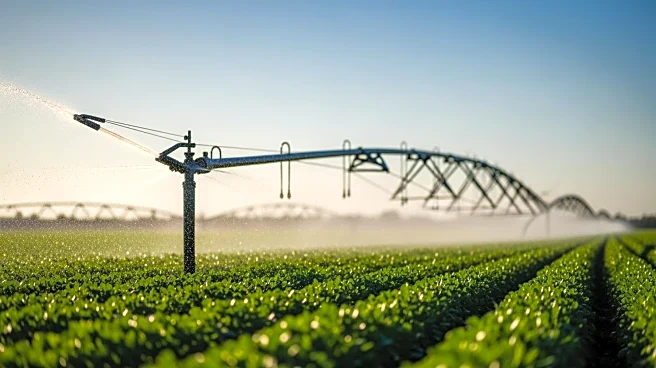What's Happening?
The World Bank has announced plans to invest in Gombe's irrigation system to enhance food security, water management, and climate resilience. The initiative is part of the SPIN project, which aims to expand irrigation and support farmers in the region.
The investment reflects the World Bank's commitment to addressing environmental challenges and improving agricultural infrastructure in Gombe.
Why It's Important?
The World Bank's investment in Gombe's irrigation system is significant as it addresses critical issues of food security and climate resilience. The initiative supports sustainable agricultural practices and helps mitigate the impacts of climate change on local communities. The investment is expected to improve water management and boost agricultural productivity, benefiting farmers and enhancing livelihoods. The project underscores the importance of international support in addressing environmental challenges and promoting sustainable development.
What's Next?
The World Bank will continue to assess ongoing projects and identify areas requiring deeper support in Gombe. The SPIN project will focus on expanding irrigation and supporting agribusiness initiatives. The investment may lead to further collaborations between the World Bank and local authorities to address infrastructure gaps and improve agricultural practices. The success of the project could serve as a model for similar initiatives in other regions facing environmental challenges.
Beyond the Headlines
The World Bank's investment highlights the broader issues of climate resilience and sustainable development in agriculture. It raises questions about the role of international organizations in supporting local communities and addressing environmental challenges. The initiative underscores the importance of collaboration between global institutions and local authorities in promoting sustainable practices and improving livelihoods. The project may prompt discussions on the need for comprehensive strategies to address climate change and enhance food security.















